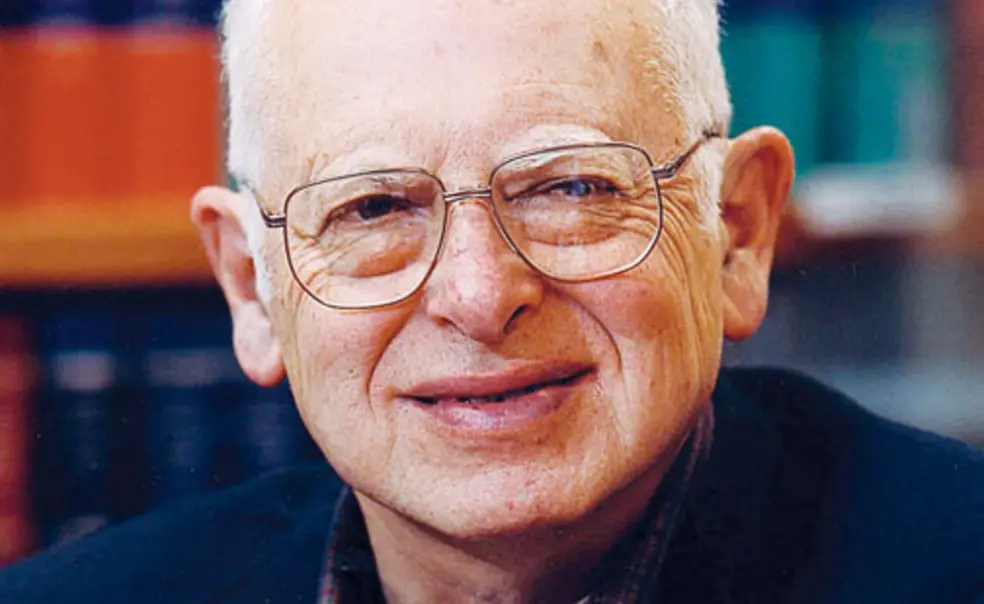A moment with ... Fred Greenstein
Fred I. Greenstein, emeritus professor of politics, has made a career of studying presidential leadership. In his latest book, Inventing the Job of President, Leadership Style from George Washington to Andrew Jackson (Princeton University Press), he turns to the nation’s founding. Is there something Barack Obama can learn from John Quincy Adams?
How have the demands for presidential leadership changed since the founding of the country?
Comparing presidential leadership now and then is like comparing a caterpillar to a butterfly. Some of the early presidents, such as Andrew Jackson, anticipate the modern presidency by taking the lead in making policy, rather than pretending that the president’s job is to administer policies that Congress defines. If you look at the Constitution, the powers of Congress are dealt with very specifically in Article I. Article II, which deals with the executive branch, is more like a Rorschach inkblot test. Presidents have made the job up as they went along. The early presidents had nothing like the retinue that modern presidents have ... but you can see a stripped-down version of the modern presidency in the early period. You see competence and incompetence, talent and its absence.
You are critical of Princeton’s favorite son, James Madison 1771.
Madison certainly was one of the most formative figures in American history and was a stellar human being. He remains the only president to preside over a war and be absolutely unwilling to trample on civil liberties. But as a leader of a nation, Madison is very underwhelming. He was physically unprepossessing, shy, and temperamentally unsuited to be an executive. He also needlessly got us into the War of 1812, a war we should not have fought and might well have lost.
Will George W. Bush’s broad conception of presidential power remain a model for future presidents?
It’s an ebb-and-flow phenomenon. Look at the works of Arthur Schlesinger Jr. In the 1950s and when he was working in the Kennedy White House, you find Schlesinger writing that the president is the nearest thing to the representative of the country. That was the standard liberal line — that the office of the presidency was overly weak. Then came Vietnam and Watergate and you find Schlesinger writing about the imperial presidency, that the office had gotten too strong. That period was followed by Gerald Ford and Jimmy Carter, both very weak presidents. There began to be talk of an “imperiled” presidency, but the pendulum swung back again.
You write that John Quincy Adams “proposed an unreasonably ambitious program but did little to advance his more feasible proposals.” Is there a lesson there for Barack Obama?
I think that Adams is a reminder of the dangers of overloading one’s agenda. Obama is trying to deal with two wars, the hot spots of Iran and North Korea, and the worst economic downturn since the Great Depression, but he also has taken on climate change and health-care reform. In the unlikely event that, by this time next year, he has not made progress on most of these fronts, then it will be seen as overload. We can’t really say yet.
You say George Washington’s reserve was an important leadership tool. Has President Obama been too much in the public eye?
It’s funny, the people who argue that Obama is overexposed tend to be the Republicans. They sound as though they are trying to help him be more effective, when I suspect that their goal is just the opposite. The overexposure argument fits the notion that Obama is nothing more than an egotistical rock star. His supporters claim that the present media market is so fragmented that the only way to deal with it is by saturation. You can’t make a speech from the Oval Office anymore and expect it to get through. Obama handles himself very well. ... On the other hand, Franklin Roosevelt cut back on the number of fireside chats after his first year in office, saying that people would grow bored and tune him out. That was a master politician making that observation, but rules are made to be broken. So far, it is hard to see that Obama is paying a penalty.
Which president seems to offer the closest comparison to Obama?
I think there are similarities with John Kennedy. Some of them are superficial — the attractive family and the team of brainy advisers — but there are also more substantive similarities, such as the ability to engage in soaring rhetoric but also field complex questions. Kennedy made some choices to go slow, especially in Vietnam but also in civil rights. Obama has been criticized for going too slow in certain areas, but sometimes there are good reasons for going slow. π
— Interview conducted and condensed by Mark F. Bernstein ’83













No responses yet